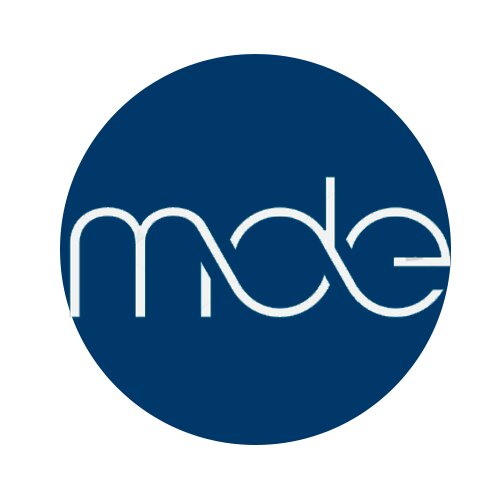Best ADR Mediation & Arbitration Lawyers in Adeje
Share your needs with us, get contacted by law firms.
Free. Takes 2 min.
List of the best lawyers in Adeje, Spain
About ADR Mediation & Arbitration Law in Adeje, Spain
Alternative Dispute Resolution - known as ADR - refers to a set of processes designed to resolve legal disputes outside of the traditional court system. The most common forms of ADR are mediation and arbitration. In Adeje, a municipality located in the Canary Islands of Spain, ADR is increasingly used as an effective and efficient way to solve conflicts in both civil and commercial matters. Spanish law recognizes ADR mechanisms, offering parties a flexible and often less costly alternative to litigation. Mediators and arbitrators play a crucial role in facilitating resolution, supported by legal frameworks at both the national and local levels.
Why You May Need a Lawyer
There are several situations in which a person or business in Adeje might require legal assistance with ADR mediation or arbitration. Some of the most common include:
- Commercial contract disputes between businesses
- Property or real estate conflicts involving landlords, tenants, or homeowners associations
- Family law matters, such as divorce settlements and child custody agreements
- Employment disagreements between employers and employees
- Community disputes, including those in residential complexes or neighborhoods
- Enforcement of international contracts involving parties from different countries
- Understanding your rights and obligations under Spanish ADR law
- Preparing or reviewing ADR clauses in contracts
- Ensuring settlements are legally binding and enforceable
Lawyers help clients understand the ADR process, protect their interests, and ensure that any agreements reached comply with applicable laws.
Local Laws Overview
ADR Mediation & Arbitration in Adeje is governed mainly by Spanish national statutes, such as the Spanish Arbitration Act 60/2003 and the Spanish Mediation Act 5/2012. These laws provide a legal framework for both voluntary and court-mandated mediation and arbitration. Key aspects of the local application in Adeje include:
- Mediation is voluntary unless required by contract or a judge, and both parties must agree to take part.
- Arbitration can be agreed upon in advance within contracts or after a dispute arises.
- Mediators and arbitrators must act with impartiality and confidentiality throughout all proceedings.
- Any settlement or award reached through mediation or arbitration is binding if both parties sign the agreement, and it can be enforceable in court if one party fails to comply.
- The Adeje Town Hall and local bar associations may provide resources or recommend accredited mediators and arbitrators in the area.
Parties often choose ADR to avoid lengthy court battles, save expenses, and maintain privacy and control over outcomes.
Frequently Asked Questions
What is the difference between mediation and arbitration?
Mediation involves a neutral third party helping both sides reach a mutually acceptable solution, but the outcome is not imposed. Arbitration is more formal, with an arbitrator making a binding decision after hearing both sides.
Is ADR legally recognized in Adeje, Spain?
Yes, ADR methods such as mediation and arbitration are fully recognized and regulated by Spanish law, including the laws applicable in Adeje.
Can I use ADR for family law disputes?
Yes, mediation is commonly used for family disputes, including separation, divorce, and child custody arrangements, often leading to faster and less adversarial resolutions.
How are mediators and arbitrators selected in Adeje?
Parties can agree on a specific mediator or arbitrator, or request a recommendation from a local bar association or mediation center. Some institutions maintain official lists of qualified professionals.
Do I have to attend court if I use ADR?
One of the main advantages of ADR is that it allows parties to resolve disputes outside of court. However, settlements or awards may need to be formalized or enforced through the court system if a party does not comply voluntarily.
Is ADR confidential?
Yes, both mediation and arbitration are confidential processes, meaning that discussions and documents are not made public or used in court unless both parties agree.
What happens if one party refuses to take part in ADR?
Mediation is voluntary unless mandated by a contract or judicial order. Arbitration can only proceed if there is a prior agreement. If one party refuses, traditional litigation may be the only option.
Can ADR be used for international disputes?
Yes, both mediation and arbitration are commonly used in cross-border commercial disputes, especially where contracts contain ADR clauses specifying Spanish jurisdiction or laws.
How long does the ADR process usually take?
Mediation and arbitration are typically much faster than court proceedings, often resolved in weeks to a few months, depending on the complexity and willingness of both parties.
Do I need a lawyer to participate in ADR?
While it is not legally required to have a lawyer, professional legal advice ensures your rights are protected and the agreement reached is valid and enforceable under Spanish law.
Additional Resources
For those seeking more information or assistance with ADR Mediation & Arbitration in Adeje, the following resources may be helpful:
- Ilustre Colegio de Abogados de Santa Cruz de Tenerife - The official bar association provides legal support and can refer mediators or arbitrators.
- Adeje Town Hall (Ayuntamiento de Adeje) - Offers information on local dispute resolution services and community mediation programs.
- Spanish Ministry of Justice - Publishes guidelines and maintains official directories of certified mediators and arbitrators across Spain.
- Local ADR Centers - Several private and public institutions in Tenerife may offer ADR services or information sessions.
Next Steps
If you need legal assistance with an ADR matter in Adeje, Spain, consider the following steps:
- Define your dispute and identify if mediation or arbitration is suitable.
- Check your contracts for existing ADR clauses that may guide the process.
- Consult with a local lawyer experienced in ADR to assess your case, your rights, and the best approach.
- Contact the local bar association or ADR center for recommendations on qualified mediators or arbitrators.
- Prepare all necessary documents and evidence relevant to your dispute.
- Participate in the ADR session with openness to negotiation, aiming for a fair settlement.
- If an agreement is reached, ensure that it is properly documented and, where necessary, registered with the Spanish courts for enforceability.
Early legal advice can help you navigate the ADR process more effectively and protect your interests throughout the procedure.
Lawzana helps you find the best lawyers and law firms in Adeje through a curated and pre-screened list of qualified legal professionals. Our platform offers rankings and detailed profiles of attorneys and law firms, allowing you to compare based on practice areas, including ADR Mediation & Arbitration , experience, and client feedback.
Each profile includes a description of the firm's areas of practice, client reviews, team members and partners, year of establishment, spoken languages, office locations, contact information, social media presence, and any published articles or resources. Most firms on our platform speak English and are experienced in both local and international legal matters.
Get a quote from top-rated law firms in Adeje, Spain — quickly, securely, and without unnecessary hassle.
Disclaimer:
The information provided on this page is for general informational purposes only and does not constitute legal advice. While we strive to ensure the accuracy and relevance of the content, legal information may change over time, and interpretations of the law can vary. You should always consult with a qualified legal professional for advice specific to your situation.
We disclaim all liability for actions taken or not taken based on the content of this page. If you believe any information is incorrect or outdated, please contact us, and we will review and update it where appropriate.










